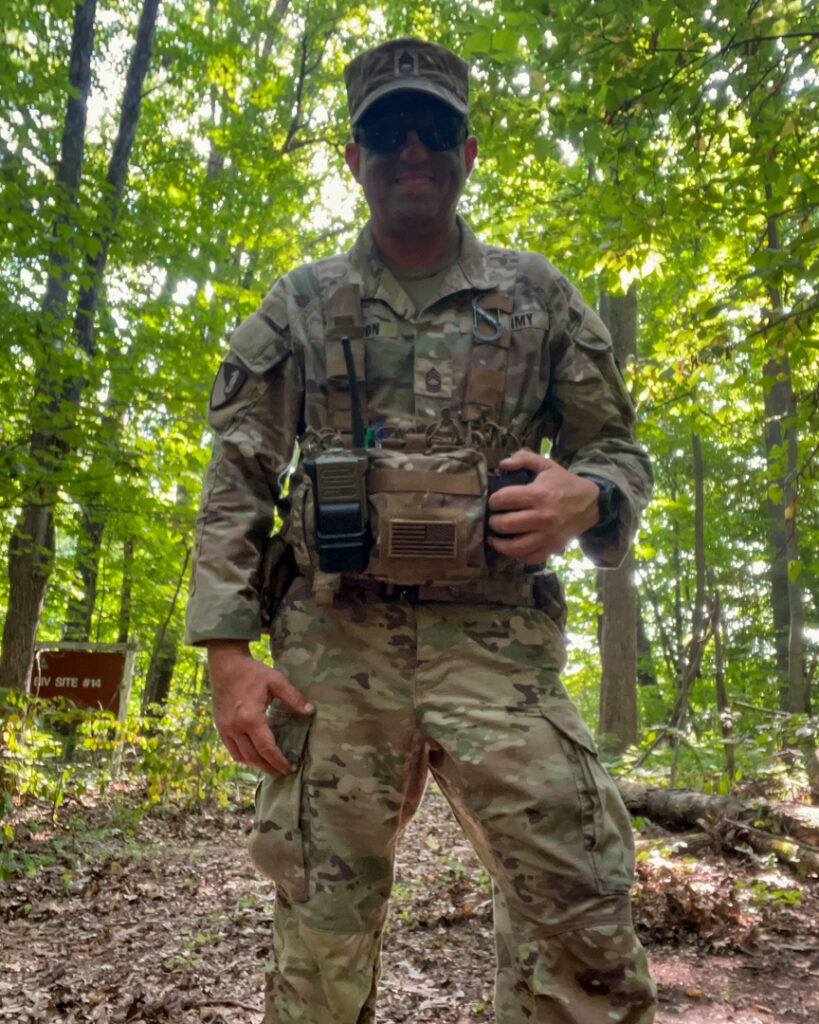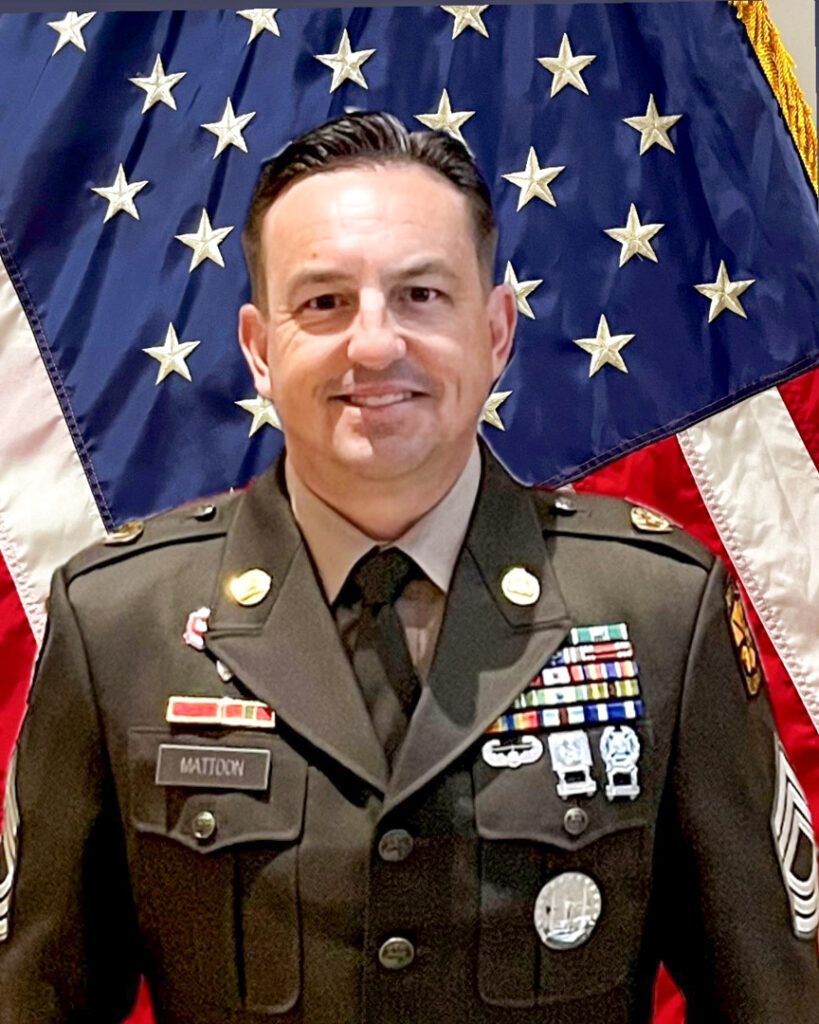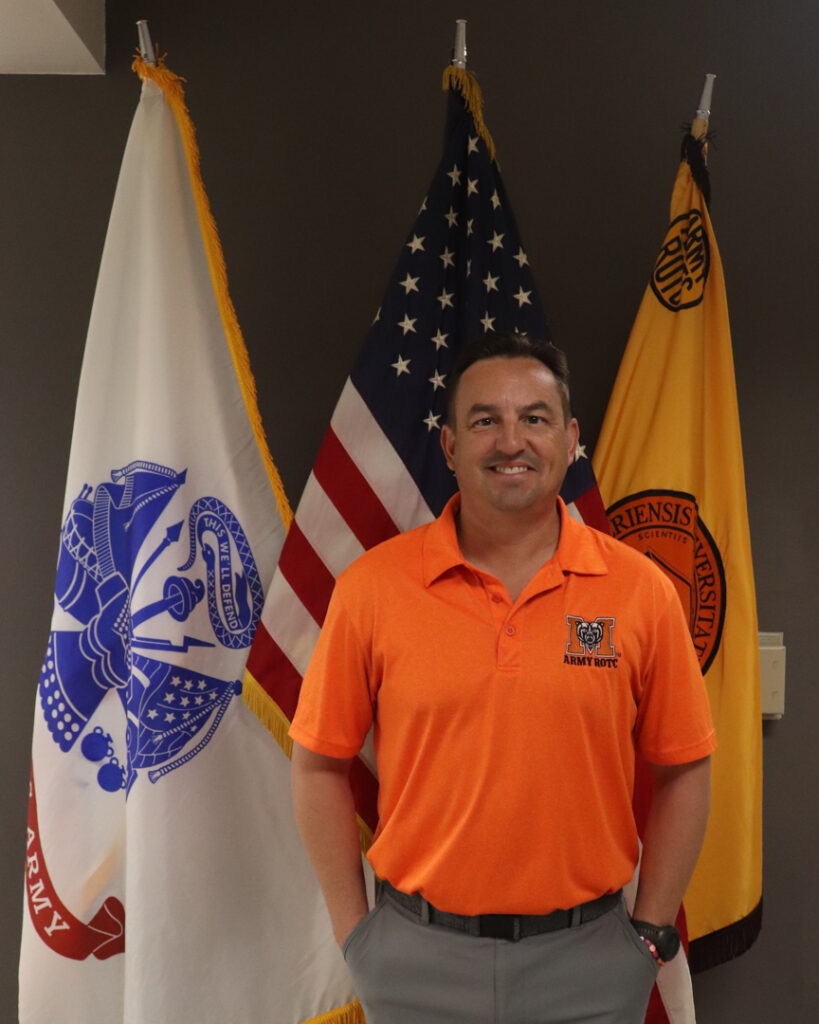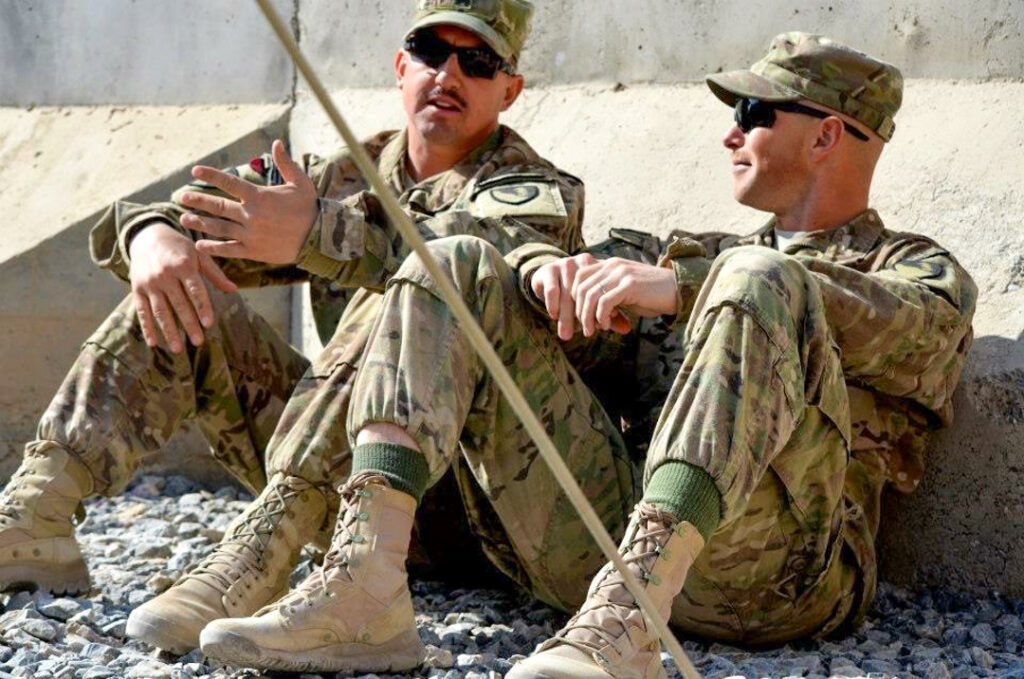Republished with permission from The Mercer Den. You can read the original story here.
Den Editor’s Note: For Veterans Day, The Den interviewed veterans who are now serving as faculty or staff at Mercer University. Three stories featuring those veterans — Michael Junod, Dr. Garland Crawford and Master Sgt. Craig Mattoon — were published throughout the week. This is the third and final story.
U.S. Army Master Sgt. Craig Mattoon’s passion to serve in the military sparked a major career change.
“I wanted to do something I really love, and that’s what changed,” said Mattoon, a military science instructor at Mercer University.
Prior to enlisting in the Army in 2010, Mattoon worked as a chiropractor. He was an athlete throughout his life and always had an interest in health care, he said.
“I was good at it, but it wasn’t something I wanted to do for the rest of my life,” he said.
Going into college, Mattoon knew he wanted to work in engineering, but he placed the idea in the back of his head for many years. It was only after he completed both his undergraduate and graduate degrees and was well involved in his career as a chiropractor that he decided to enlist, he said.
Mattoon said he originally wanted to join the military as an active duty engineering officer, but as he started showing more interest in joining, the war in Afghanistan intensified, and the demand for more Army Reserves and National Guard officers increased. The military put a restriction on active duty officers in other units to meet the demand, and Mattoon did not know how long the wait would be.
“I was at the point where if I was going to make that change, I had to make it,” he said. “I didn’t want to drag it out, so I decided to go in the enlisted side.”



Matton said he has enjoyed his time in service.
“The engineering world in the Army is different because it’s a broad scope,” he said. “We can go from building roads or ranges one day, especially in a combat zone, to digging in tanks for large-scale fights.”
Joining the military allowed him to “kill two birds with one stone,” he said. “I was able to enlist in the Army as an engineer and fulfill that want to do construction and engineering, but it also gave me the opportunity to serve.”
Mattoon said his experience in the military has been positive and has benefited him in the long run.
“It’s a sense of serving something bigger than ourselves,” he said. “You’re not only serving for yourself, you’re serving for everybody out there in our country, as well as leading our nation’s younger individuals.”
Many young soldiers enter the military inexperienced in leadership, he said, and he has been able to mentor them and help them develop greater skill sets.
At Mercer, Matton said he works every day to teach soft skills such as communication, leadership and teamwork to his students in the classroom. The ROTC program’s motto is “Leadership Excellence,” and by the end of each student’s program, the goal is to be commissioned as a second lieutenant in the Army, he said.
“Everybody’s not the same. I can’t lead one person the same way I lead somebody else,” he said.

In the Army, people with different backgrounds come from all around the country, and learning new skills is not a one a size fits all, he said. It’s important to adapt leadership skills for each individual, which he said he applies in his classes as well.
“We’re challenging these students every day, whether it’s during briefings or during the missions that we do, to make those decisions on the fly, and it helps with life, not only the military,” he said.
Not everyone who leaves the program will end up in the same profession, so it is important to blend skills that can be used every day and in the workplace, he said.
Mattoon said he can see similarities between his work with the Army and his job as a chiropractor. Communication is the strongest thread between both careers, he said.
As a chiropractor, he said he would see around 30 to 40 patients a day, which required him to adapt his abilities constantly.
“It’s the same in the Army. You have 30 to 40 soldiers under you, and you’re communicating with them all day long,” he said.
The ability to mold young officers together is what gives strength to the ROTC program, he said. At some point, those students will be officers, and they will step into their roles and be someone’s counterpart, Mattoon said. To prepare for that day, he said it’s important to blend skills and assess them in various situations.
Mattoon said the military provides opportunities for students to try out paths they never considered.
“If you’re in college, take the ROTC class because it opens your eyes to something different,” he said.
Military contracts can be for a short period of time, Mattoon said.
“You can switch jobs, but you don’t know what you want to do until you try something,” he said. “Any time you serve in the military, you’re a much more structured person, and that lends itself to a lot of different companies and job opportunities.”









